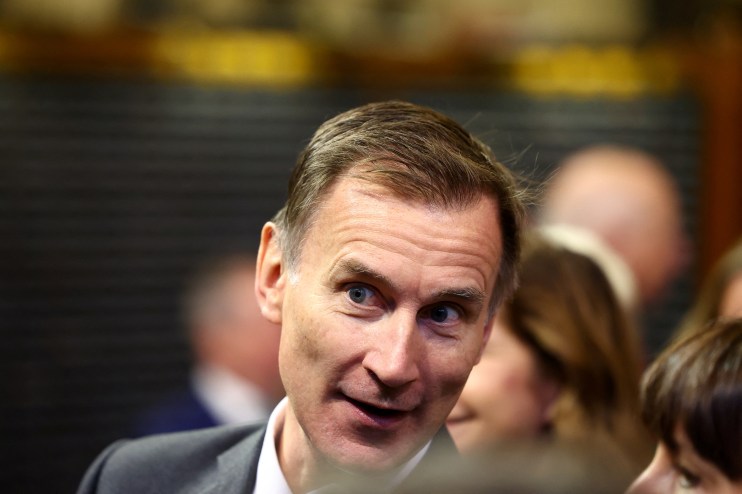How well we spend our money is just as crucial as how big our ‘fiscal headroom’ is

Later today, the Chancellor will stand at the dispatch box to deliver his autumn statement – likely the penultimate fiscal statement before a general election, making the stakes particularly high. As ever, attention will be on what Hunt does with the £20bn of ‘headroom’, and any rabbits he may pull from his famous red box. There will, however, be less attention on where the more than £1 trillion of taxpayer pounds spent by the state is actually going.
Despite the fact that public spending now equates to 46.5 per cent of GDP, up from just over a third in 1990, public services are crumbling. In other words, given we appear to have little to show for this historic level of peacetime spending, you would think we’d be more interested in understanding why.
To be fair, in June the Chancellor did announce a cross-government review of productivity and its findings are likely to feature today. But successive governments have conducted successive reviews and still we have very little idea whether public spending is actually getting results.
During research for a report on efficiency published last month, Reform repeatedly heard from senior officials that the government lacks even basic data to track performance. One person described information gaps about the objectives and key results of spending as “baffling and unconscionable”.
High-performing organisations have robust processes to know, day-to-day, whether programmes are on track. As a review from former Cabinet Office minister Lord Maude said last week, the availability of this information in government is “variable at best”.
Only a small number of the most complex and significant projects carried out by government have any evaluation plans at all — meaning billions of pounds could be being wasted on programmes that simply don’t work.
The very welcome Evaluation Task Force, set up to fill “strategic evidence gaps” across government, has a laughable £15m budget over three years. This is significantly less than many departments’ advertising budgets for a single year.
And when government does carry out studies to determine whether taxpayer money is achieving its intended impact, the findings often go unpublished. Civil servants told us about conversations in which they had been advised that evaluating a long-standing area of spending would be “too politically sensitive”, or difficult because “we’ve been doing [that programme] for years”.
Worse still, we heard that when departments suspect a programme is undeliverable, they’ll prioritise banking the cash from Treasury over being honest about the likelihood of success. The incentive is a bigger budget and more staff, rather than achieving the best results for citizens.
One-off productivity challenges are not the answer; efficiency must be properly embedded in the everyday work of the civil service.
The Chancellor should announce that departmental spending will not be signed off without a strong evidence base, and a plan for evaluation. In Canada this is standard, with spending only signed off by the Treasury if a department’s head of evaluation verifies that the design and implementation of the plan is rooted in evidence.
The government should also establish a ‘Performance Taskforce’, to compliment the Evaluation Task Force, in Cabinet Office. Their job should be to set clear standards around the quality and use of real-time performance information. We (eventually) built high-impact, real-time trackers during the pandemic and should do so again.
All of this should come with a presumption of public transparency.
Efficiency is not a technical nice to have, it is a moral imperative. Every pound that is wasted, or used ineffectively, is a pound that could have been used to improve people’s lives. When the Chancellor rises today, it should be with a commitment to build an efficiency mindset across Whitehall.
